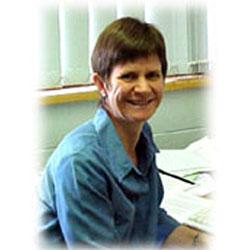Problem based learning gets the thumbs up
Published on 28 November, 2002
Social work graduates from Central Queensland University are often better skilled than graduates from other institutions, according to their employers.
Academic Coordinator for Problem-Based Learning, Scot Aldred said that to date, anecdotal evidence gathered from the employers of social work graduates suggests that they are very happy with the organisational and interpersonal skills displayed by CQU graduates and believe that in many areas, they are better than graduates from other institutions that use a more traditional approach in their teaching.
 The social work undergraduate degree has been 100% problem-based learning for the last six years and now has two years worth of graduates in the field.
The social work undergraduate degree has been 100% problem-based learning for the last six years and now has two years worth of graduates in the field.
The program is run through distance education with a number of residential sessions interweaved throughout the program.
Social workers require a wide skill base to be effective in their profession and it was the belief of the staff in the School of Social Work and Welfare Studies that the development of these skills would be best served by employing a problem-based learning (PBL) approach.
Mr Aldred said PBL develops enhanced interpersonal, teamwork and problem solving skills, when compared with more traditional approaches to teaching and learning. Emotional intelligence also seems to develop more quickly with PBL. Mr Aldred recently conducted a focus group with fourth year students and asked them what they thought about problem-based learning in the context of their studies at CQU. While all of the students said that they preferred this approach, a few admitted to liking a break from the methodology when they would undertake an elective from another school.
All of the School\'s staff are committed to the PBL approach and believe that this approach produces superior social work graduates.
The assessment involved with the social work program includes: group presentations, peer assessment, self-assessment and the maintenance of a reflective journal or problem log. The assessment is exhaustive and is intertwined with the learning.
Mr Aldred said our students have indicating that they believe the PBL methodology to be superior to traditional educational approaches, although they do acknowledge that PBL means more work for them. The feedback obtained from the Student Evaluation Section supports this.
“We believe that the quality of our graduates is correlated to the problem-based learning we employ in the social work program.
Above: Lectuer in Social Work Jo Mensinga.

